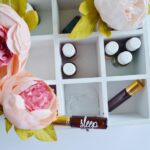Essential oils have been used for centuries for their various health and beauty benefits. These oils are highly concentrated plant extracts that capture the natural fragrance and properties of the plant they are derived from. In recent years, essential oils have gained popularity in the world of hair care due to their numerous benefits.
The use of essential oils in hair care can be traced back to ancient civilizations such as Egypt, Greece, and India. Cleopatra, the famous Egyptian queen, was known to use essential oils such as rosemary and lavender to enhance the beauty of her hair. These oils were not only used for their pleasant scent but also for their ability to promote hair growth and improve overall hair health.
The benefits of using essential oils for hair care are vast. They can help nourish and moisturize the scalp, promote hair growth, reduce dandruff and itchiness, hydrate dry hair, balance oil production in oily hair, and even prevent and treat hair loss. With their natural properties and versatility, essential oils have become a popular choice for those looking to improve the health and appearance of their hair.
Understanding the Science Behind Essential Oils and Their Effectiveness on Hair
To understand how essential oils work on hair, it is important to know that each oil has its own unique chemical composition. These compounds interact with the scalp and hair follicles, providing various benefits.
One of the key roles of essential oils in hair growth and health is their ability to stimulate blood circulation in the scalp. Improved blood flow means more nutrients and oxygen are delivered to the hair follicles, promoting healthy hair growth. Additionally, essential oils have antimicrobial properties that can help combat scalp infections and reduce inflammation, which can contribute to hair loss.
The effectiveness of essential oils on hair can be attributed to their molecular structure. The small molecular size of these oils allows them to penetrate the hair shaft and follicles, providing deep nourishment and hydration. This helps strengthen the hair strands, reduce breakage, and improve overall hair health.
Essential Oils for Hair Growth: Which Ones Work Best?
When it comes to promoting hair growth, there are several essential oils that have been found to be particularly effective. These oils include rosemary, peppermint, lavender, cedarwood, and thyme.
Rosemary essential oil is known for its ability to stimulate hair growth by increasing blood circulation in the scalp. It also has antimicrobial properties that can help prevent scalp infections and dandruff. Peppermint essential oil has a cooling effect on the scalp, which can help improve blood flow and promote hair growth. Lavender essential oil is not only soothing but also has been shown to promote hair growth by increasing the number of hair follicles in a study conducted on mice.
To use essential oils for hair growth, you can add a few drops of the oil to your shampoo or conditioner, or create a DIY hair mask by mixing the oil with a carrier oil such as coconut or jojoba oil. Massage the mixture into your scalp and leave it on for at least 30 minutes before rinsing it out.
Essential Oils for Dandruff and Itchy Scalp: How They Can Help
Dandruff and itchy scalp can be caused by various factors such as dryness, fungal infections, or an overproduction of sebum. Essential oils can help alleviate these issues by providing moisture, reducing inflammation, and combating fungal infections.
Tea tree essential oil is one of the most popular choices for treating dandruff and itchy scalp due to its antifungal properties. It can help kill the fungus that causes dandruff and reduce itchiness. Eucalyptus essential oil is another effective option for dandruff as it has antimicrobial properties that can help combat fungal infections.
To use essential oils for dandruff and itchy scalp, you can add a few drops of the oil to your shampoo or conditioner. Alternatively, you can create a scalp treatment by diluting the oil with a carrier oil and massaging it into your scalp. Leave it on for at least 30 minutes before rinsing it out.
Essential Oils for Dry Hair: How to Hydrate and Nourish Your Locks
Dry hair can be caused by various factors such as excessive heat styling, overwashing, or environmental factors. Essential oils can help hydrate and nourish dry hair by providing moisture and nutrients to the hair shaft.
Jojoba essential oil is a popular choice for dry hair as it closely resembles the natural oils produced by the scalp. It can help moisturize the hair without leaving it greasy. Argan essential oil is another effective option for dry hair as it is rich in fatty acids and vitamin E, which can help nourish and hydrate the hair.
To use essential oils for dry hair, you can add a few drops of the oil to your conditioner or create a leave-in treatment by mixing the oil with a carrier oil. Apply the mixture to damp hair and leave it on for a few hours or overnight before rinsing it out.
Essential Oils for Oily Hair: How to Balance Your Scalp and Control Oil Production
Oily hair is often caused by an overproduction of sebum by the scalp. Essential oils can help balance the scalp’s oil production and control excess oiliness.
Lemon essential oil is known for its astringent properties, which can help regulate sebum production and reduce oiliness. It also has antimicrobial properties that can help combat scalp infections. Rosemary essential oil is another effective option for oily hair as it can help balance sebum production and promote a healthy scalp.
To use essential oils for oily hair, you can add a few drops of the oil to your shampoo or create a scalp treatment by diluting the oil with a carrier oil and massaging it into your scalp. Leave it on for at least 30 minutes before rinsing it out.
Essential Oils for Hair Loss: How to Prevent and Treat Thinning Hair
Hair loss can be caused by various factors such as genetics, hormonal imbalances, or nutritional deficiencies. Essential oils can help prevent and treat hair loss by promoting blood circulation in the scalp, strengthening the hair follicles, and nourishing the hair.
Peppermint essential oil is known for its ability to promote hair growth and prevent hair loss. It has been shown to increase the number of hair follicles and improve hair thickness in studies conducted on mice. Cedarwood essential oil is another effective option for hair loss as it can help stimulate blood circulation in the scalp and promote hair growth.
To use essential oils for hair loss, you can add a few drops of the oil to your shampoo or create a DIY hair mask by mixing the oil with a carrier oil. Massage the mixture into your scalp and leave it on for at least 30 minutes before rinsing it out.
Essential Oil Blends for Different Hair Types: Customizing Your Hair Care Routine
One of the great things about essential oils is that you can create custom blends to suit your specific hair type and needs. By combining different oils, you can create a personalized hair care routine that addresses your unique concerns.
For dry hair, you can create a blend of lavender, rosemary, and jojoba essential oils. Lavender helps moisturize the hair, rosemary stimulates hair growth, and jojoba provides deep hydration.
For oily hair, you can create a blend of lemon, tea tree, and cedarwood essential oils. Lemon helps regulate sebum production, tea tree combats scalp infections, and cedarwood stimulates blood circulation.
For hair loss, you can create a blend of peppermint, rosemary, and lavender essential oils. Peppermint promotes hair growth, rosemary strengthens the hair follicles, and lavender nourishes the hair.
To create an essential oil blend, simply mix a few drops of each oil in a carrier oil such as coconut or jojoba oil. You can then use this blend in your shampoo, conditioner, or as a scalp treatment.
How to Use Essential Oils for Hair Care: Tips and Tricks for Best Results
When using essential oils for hair care, there are a few tips and tricks that can help you get the best results.
Firstly, it is important to dilute essential oils with a carrier oil before applying them to your hair or scalp. This helps prevent any potential skin irritation or adverse reactions. The recommended dilution ratio is usually 2-3 drops of essential oil per tablespoon of carrier oil.
Secondly, it is best to perform a patch test before using any new essential oil on your hair or scalp. Apply a small amount of the diluted oil to your inner forearm and wait for 24 hours to see if any allergic reactions occur.
Lastly, consistency is key when using essential oils for hair care. It may take some time to see noticeable results, so it is important to be patient and continue using the oils regularly.
Safety Precautions When Using Essential Oils on Your Hair
While essential oils can provide numerous benefits for hair care, it is important to use them safely to avoid any adverse reactions.
Firstly, essential oils should never be ingested. They are highly concentrated and can be toxic if consumed orally. They should only be used externally on the hair and scalp.
Secondly, essential oils should always be diluted with a carrier oil before applying them to the hair or scalp. Applying undiluted essential oils directly to the skin can cause irritation or allergic reactions.
Lastly, it is important to be aware of any potential allergies or sensitivities you may have to certain essential oils. Perform a patch test before using any new oil and discontinue use if you experience any adverse reactions.
Transforming Your Hair Care Routine with the Power of Essential Oils
In conclusion, essential oils have become a popular choice for hair care due to their numerous benefits. They can promote hair growth, reduce dandruff and itchiness, hydrate dry hair, balance oil production in oily hair, and even prevent and treat hair loss. By understanding the science behind essential oils and their effectiveness on hair, you can create a personalized hair care routine that addresses your specific needs.
Whether you have dry, oily, or damaged hair, there is an essential oil that can help transform your locks. By incorporating essential oils into your hair care routine and following the tips and tricks mentioned above, you can achieve healthier, more beautiful hair. So why not harness the power of nature and give your hair the love and care it deserves with essential oils?



